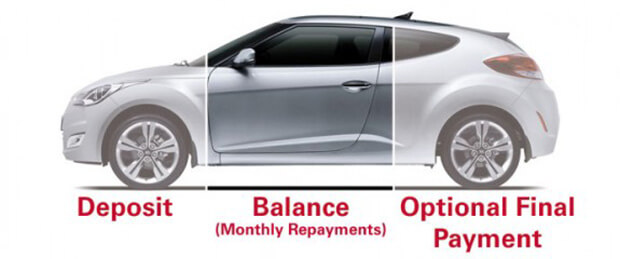Over 1 in 10 have bought a vehicle with PCP

Statistics are revealing that over 1 in 10 people have bought a car with PCP (Personal Contract Plan).
Áine Carroll of the CCPC (Competition and Consumer Protection Commision) has cautioned that PCPs aren’t as affordable as they would seem.
Buying a car at the best of times can be a tricky and sometimes stressful process to say the least, and over half of motorists don’t realise that their car may not have any equity by the time they go to sell it and buy a new one.
One media outlet conducted a survey in which they found that when it came to buying a new car, over one third (34%) opted to use their savings to fund the purchase of a new car, followed by a personal loan (32%), while 13% opted for a personal contract plan or PCP.
The survey found that consumers spend far less time considering finance options than what they’re buying. It was found that on average, people spend about 4.5 times longer considering the cars that they’re buying than choosing how to pay for them.
While this might not seem significant, when you consider that the average size of a personal contract plan, for example, is around €25,000, it becomes very important to consider how we are going to finance a new vehicle.
Áine Carroll is the Director of Communications and Market Insights at the Competition and Consumer Protection Commission (CCPC). Her team is the first to study the new ways that Irish consumers are paying for their cars including personal contract plans or PCPs. PCP’s are becoming more and more popular. Carroll went on to say:
“In 2016 67% of new cars were purchased using either hire purchase or PCP. Approximately one-third of new cars and around 12% of second-hand cars were bought using PCP.”
Nearly one in five (19%) were not aware that their credit rating could be affected by missing payments, and over a quarter (27%) were not sure at which point you own your car on PCP.
About 64% of people surveyed stated that low monthly repayments were the most important factor in considering finance, while 12% said it was ‘convenience’ and 9% ‘a straightforward approval process’.
What we should remember though is, that PCPs might be initially cheaper, but we should not forget that there may be a large final payment.
Many people feel that PCPs are cheaper than say a Credit Union loan but they missed the very important point that a large percentage of the car is only paid off at the end. Many are put off by this large payment at the end of a PCP plan.
This element of car ownership is actually an important one for those whose circumstances may change, so it's important to understand how PCP’s work and the commitments you have to keep too when taking out one of these plans.
A PCP is not like a regular car loan. Say for example you get a loan of €10,000 from the Credit Union to buy a used vehicle, when you but the car, you actually own it. If you want too, you can sell your car and pay back the loan. With PCP, though, you don’t own that car so you don’t have that option or flexibility in order to come up with the money.
When it comes to PCP’s, it is possible for your car to have no equity at the end of a contract (though nearly 30% of you did not realise this, and 21% weren’t sure). This means that your old car may not go towards the cost of your next one. Car values are volatile. Along with that the consumer can have broken the mileage and wear and tear agreements which can result in a financial penalty.
Another factor to consider when taking out PCP is that if a lot of cars have been bought on PCP, at the end of three years, there will suddenly be a lot of three-year-old cars on the market, which means that trade-ins aren’t going to be worth as much as before.
Although a Personal Contract Plan may seem like a good option for you, it is important to weigh up all the different factors of taking out a finance. Every credit agreement appears on your credit history with the Irish Credit Bureau and if you have missed payments for whatever reason, this record will is not something that disappears quickly. We may not fully realise that a credit history is retained for five years after closing an account. It doesn’t disappear which is very important.
The PCP option may look cheaper at first glance, but what happens at the end of the loan term? It’s not just the cost of the car, it’s tax, insurance, servicing. You don’t want to take out a PCP on a car that you can’t afford to run. Worst case scenario, you can just end the agreement, right?
If you’re in the market for a car, you need to take a long hard look at your personal finances before you even consider what kind of car you would like to drive. The CCPC has a really concise budget calculator that may be useful in your research.
Author

Justin Kavanagh
Justin Kavanagh is a recognised leader
in automotive intelligence and vehicle
data supply to the entire motor industry.
He has almost 20 years experience in
building systems from the ground up.
As the Managing Director of Vehicle
Management System, he understands the
need and importance of trustworthy and
reliable vehicle history and advice to
both the trade and the public.
Follow me on LinkedIn